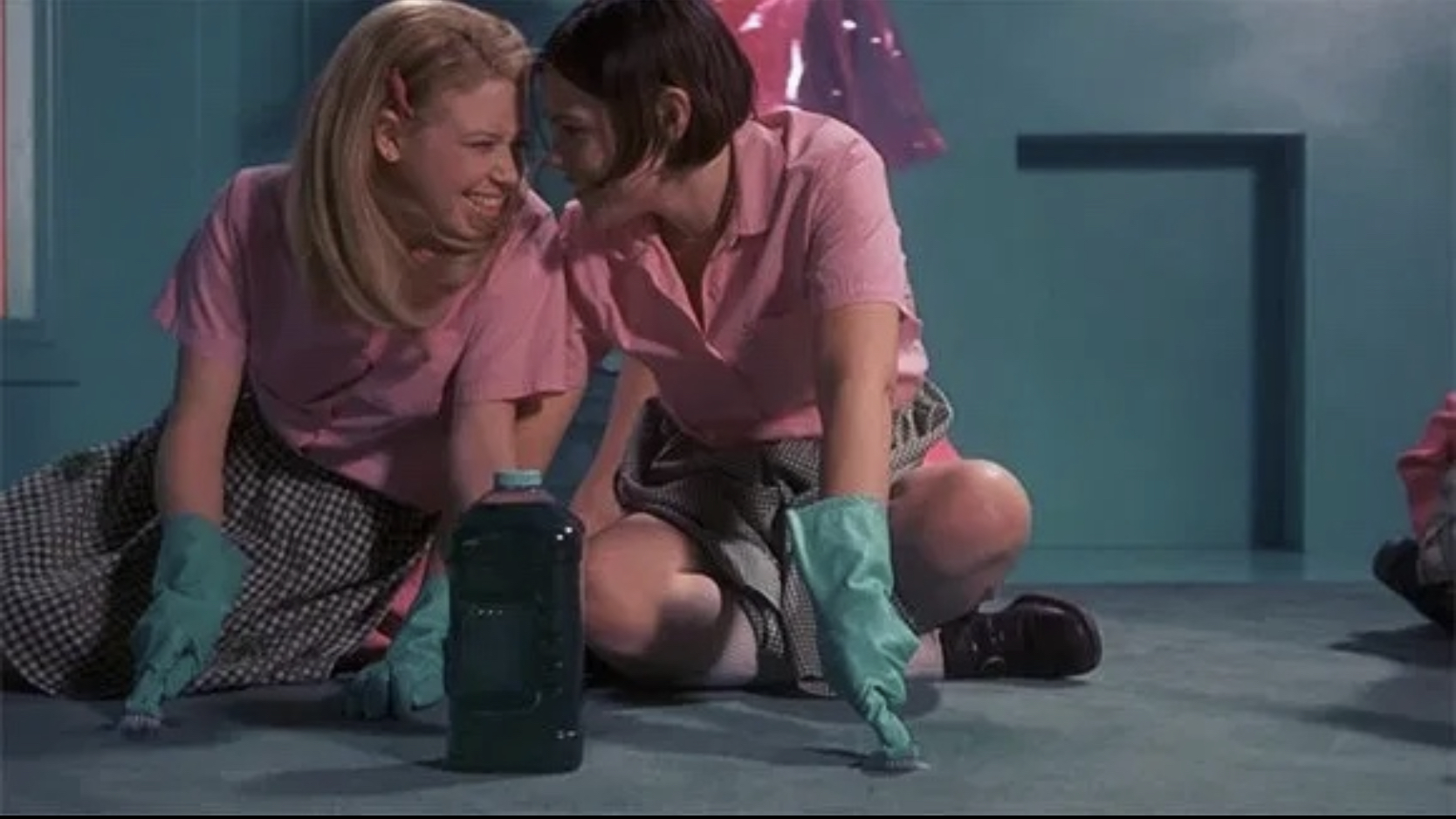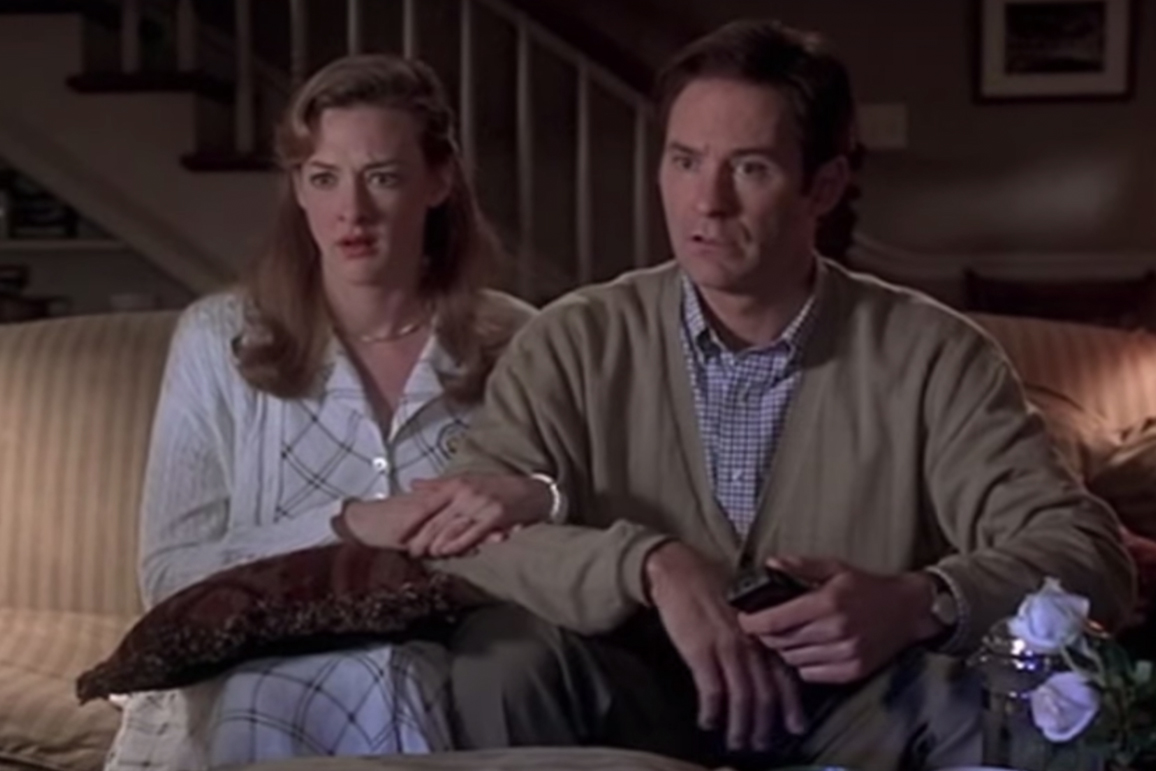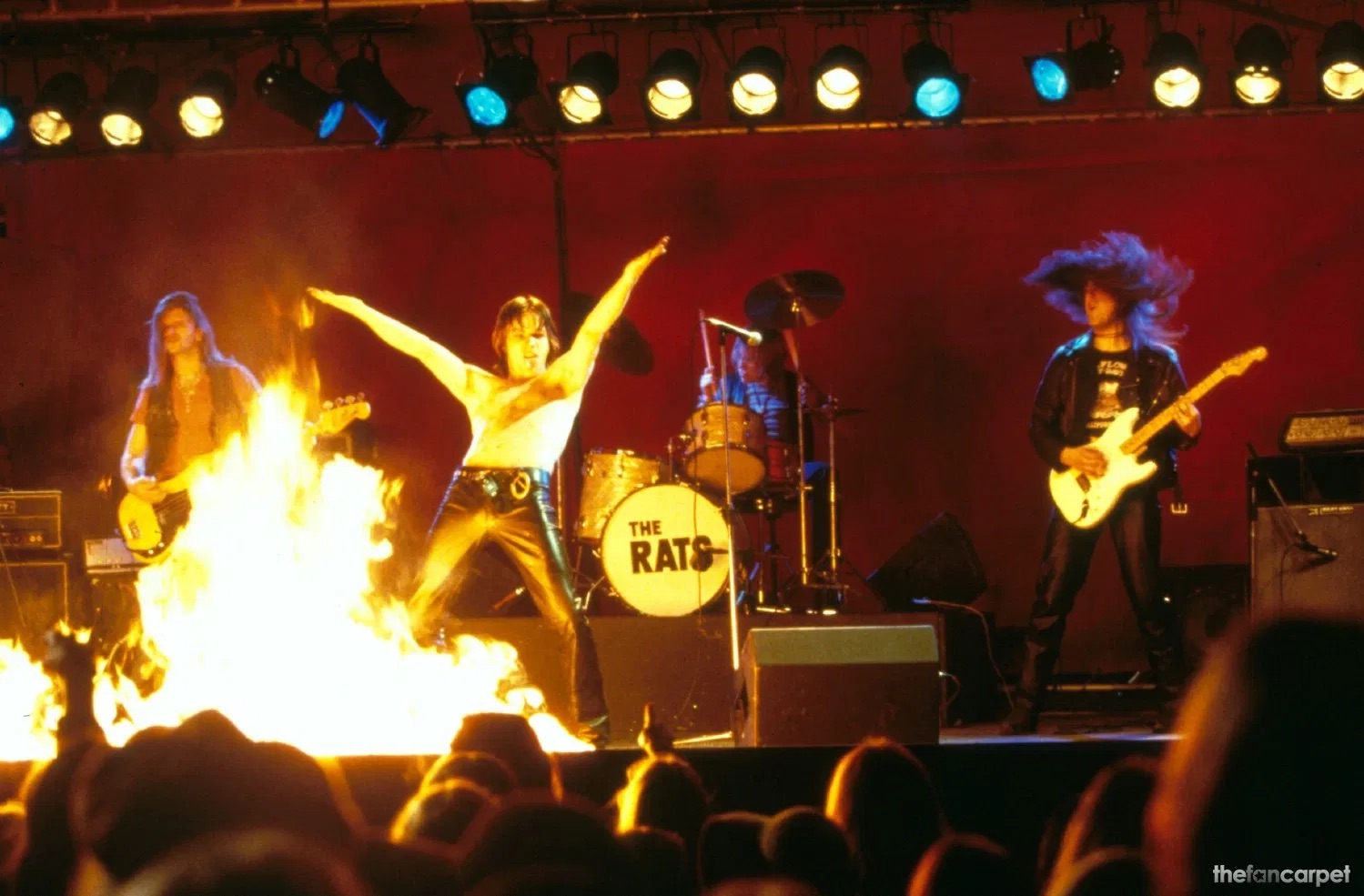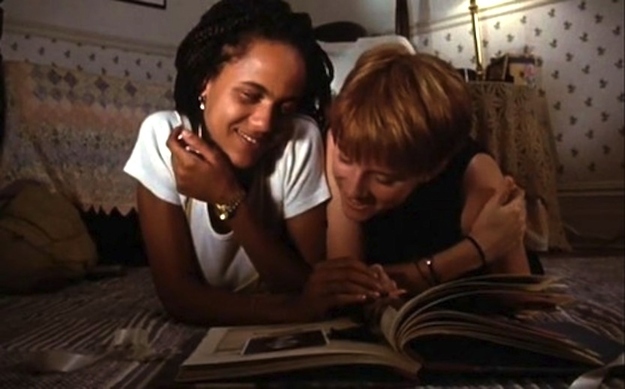Step One: Admitting you’re a homosexual.
And so begins But I’m a Cheerleader, one of the 90’s sharpest satires on what it means to be gay and how the LGBTQ+ is looked upon by a truly repressed society. The always wonderful Natasha Lyonne is Megan, a fairly common teenager who has a boyfriend, does well in school, and is on the cheerleading squad. For her, everything is perfectly normal, but to those who know her they are worried because she might be homosexual. She doesn’t enjoy making out with her boyfriend (honestly who can blame her because he essentially licks her entire face) and has pictures of beautiful women hanging in her locker, so of course she must be queer. Thankfully her parents (Bud Cort and Mink Stole) have called in reinforcements, the camp True Directions, to help Megan on her path to heterosexuality.
It’s nearly impossible to describe just how wonderfully gay this reeducation camp actually is. Director Jamie Babbit and writer Brian Peterson take aim at one of the most awful institutions that exist in our country, conversion therapy, and absolutely skewer it from within. Headed up by Cathy Moriarty and RuPaul, True Directions is a farce. Campers are made to wear bright pink and baby blue to help them acclimate to their “correct” gender, and it’s a color scheme that would even make Tim Burton say “whoa that might be too bright.” Campers are forced to identify their root cause of gayness (eating tofu, listens to Melissa Etheridge, born in France, Mom got married in pants) then work on demystifying the opposite sex. The men are made to chop wood while the women vacuum. For today’s audience such suggestions might seem quaint and idiotic, but if the past few years have taught us anything it’s that certain parts of our population hold tight to these gender roles.
Each camper is met with numerous questions about their sexuality and gender identity, poor assumptions are made, and far too often the worst advice is given on how they can be happy. If there are heroes in this movie, it’s Richard Moll and Wesley Mann as Larry and Lloyd, two gay men who do their best to liberate the young people with their “underground homo railroad” by offerting them rides to a local gay club as well as offer them a place to stay if their family ultimately rejects them.
While much of the film is played for laughs, it doesn’t forget that at the heart of this film are teenagers who so desperately want to be loved and accepted for who they are but face constant rejection. Many, such as the wonderful Clea Duvall as the seemingly liberated Graham, fight the system for as long as they can but are tantalizingly close to their breaking point because mommy and daddy won’t love them unless they meet their parents standards of who they want them to be. This is heartbreaking and is a message that needs to be focused on. We cannot forget that between 5-10% of LGBTQ youth have attempted suicide (40% considered), a rate that is 2-3x higher than their peers. It’s the second leading cause of death among young LGBTQ+ people ages 10-24. While this film doesn’t tackle this issue head on they present scenario after scenario where teens are made to feel miserable by trying to be themselves.
But I’m a Cheerleader might present the issue in a humorous manner, and thank goodness it had a happy ending, but conversion therapy is something that consistently does way more harm then good and needs to be outlawed by a kind, caring, and compassionate society. In the 20 years that have passed since BIAC came out our country has come a long way, but we still have more work to do. Thankfully we have films like this to open our eyes.
Rated 3.5 out of 5



